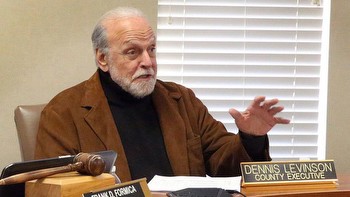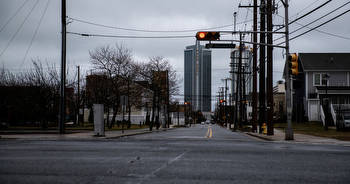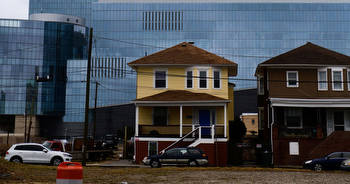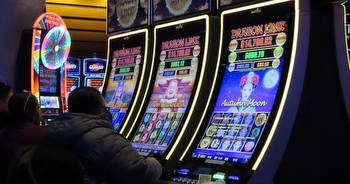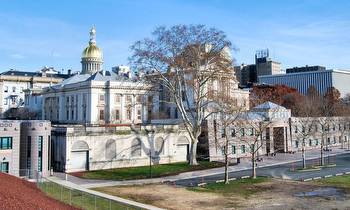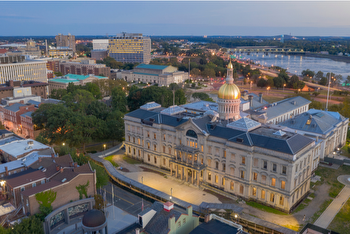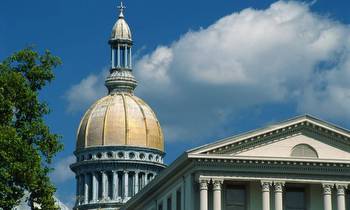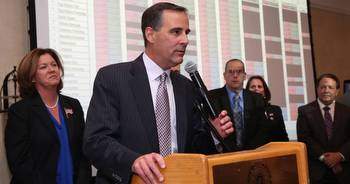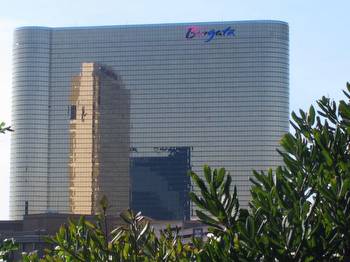Murphy approves controversial tax breaks for Atlantic City casinos

Gov. Phil Murphy on Tuesday gave final approval to a controversial plan to boost tax breaks for Atlantic City’s casinos during the coronavirus pandemic — which proponents say is necessary to stave off job losses and even casinos closures but opponents warn is a giveaway that will hurt taxpayers.
Murphy signed the bill (S4007) into law one day after both houses of the state Legislature passed it during the last voting session of the year. He did not provide a statement for why he signed off on the proposal.
The legislation alters an existing law that allows Atlantic City’s casinos to make regular payments in lieu of property taxes to the city, Atlantic County, and the local school district.
The original law was enacted in 2016, a time when the industry was reeling from the closure of casinos. Known as the PILOT law, it banned the city’s casinos from going to court to appeal their taxes, a process they used frequently during their financial troubles and often left local governments with holes in their budgets. Casinos were permitted to make regular payments instead, giving them a clear picture of what they owed for their property and guaranteeing the governments got their money.
This new law exempts two of the industry’s biggest and fastest-growing revenue streams — sports betting and online gaming — from calculations on how much the casinos should pay the next five years.
The amount casinos will pay next year will be reduced by $55 million and and likely between $30 million and $65 million in following years through 2026, though some new payments will partially offset that, according to an analysis from the nonpartisan state Office of Legislative Services.
Casino leaders say despite a boon in revenue from sports betting and online gaming, they need the measure to help recover from losses during the pandemic because of lagging revenue from in-person gambling.
The Casino Association of New Jersey said in a statement Tuesday the law “will protect thousands of jobs and provide certainty and stability” to the city and county over the next half-decade, providing money to help improve local infrastructure and “create a safer community for visitors and residents.”
“The casino industry is committed to growing and strengthening Atlantic City’s economy as we continue to revitalize our historic seaside destination resort,” the group said.
Outgoing state Senate President Stephen Sweeney, D-Gloucester — the main sponsor of the measure — said up to four of the city’s nine remaining casinos were in danger of closing without the new legislation, which would lead to thousands of job losses. Sweeney said Monday that’s based on what casinos have told him and “from listening to and understanding the industry.”
Murphy on Tuesday also signed a separate Sweeney-sponsored bill (S3994) that gives tax credits to Atlantic City casinos for rehiring former workers, hiring new , and marketing to draw more tourists to town.
Sweeney said in a statement Wednesday the original PILOT law helped keep casinos from bankruptcy, and these new laws will help the gambling halls recover after “two rocky years of reduced tourism and convention cancellations due to COVID-19 restrictions and fears.”
“We have had tremendous investment in Atlantic City by the casino industry in recent years that created thousands of additional jobs both in the casinos themselves and in related service industries,” the Senate president added. “We can’t afford to turn back the clock on the progress we have been making.”
The measure has been one of the most closely watched bills during the frantic lame-duck voting period before the next state Legislature is sworn in Jan. 11. It comes as Sweeney, a South Jersey lawmaker who has often pushed legislation focused on Atlantic City, is set to leave office at the end of the session after losing re-election last month in a stunning upset.
Critics say arguments for the law are suspect because casino revenue is up overall despite the pandemic. They also warn the measure will bolster gambling halls at the expense of taxpayers.
The state Division of Gaming Enforcement released data last week showing Atlantic City’s casinos, driven by sports betting and online gaming winnings, won $4.3 billion through the first 11 months of 2021. That’s up nearly 69% from the same period last year and 34% over the first 11 months of 2019.
State data also shows in-person gambling is down 5.5% from 2019 levels. And casino executives complain they don’t collect all the revenue from sports betting and online gaming because it must be shared among technology companies and sports book partners.
New Jersey Policy Perspective, a liberal think tank, said the law will provide at least $145 million in annual tax breaks despite casinos having “a banner bounce-back year in 2021″ and even though the original law gives casinos “special tax treatment.”
“Once again, the house wins,” said Peter Chen, a senior policy analyst for the group. “This losing bet for New Jersey deprives the state and its residents of much-needed public investments in schools, roads, services, and other building blocks of a strong economy.”
Don Guardian, a former Atlantic City mayor who was elected to the state Assembly last month, warned that Atlantic County taxpayers would “have to pay more so that the casino industry gets a tax break.”
Atlantic County Executive Dennis Levinson told the Press of Atlantic City the county would file a lawsuit against the law if Murphy signed it.
“We are going to sue for what we have coming to us, we’re in the process,” Levinson told the newspaper. “It’s just flat out unfair.”
The state Senate voted 21-15 on Monday to approve the bill — the minimum votes required for passage — while the Assembly passed it 46-19.
The law is the latest in a series of measures state leaders have enacted over the last five years to help business and local government in the seaside gambling resort. Most notably, the state remains in control of many city hall functions after a number of casino closures the last decade.
Our journalism needs your support. Please subscribe today to NJ.com.








